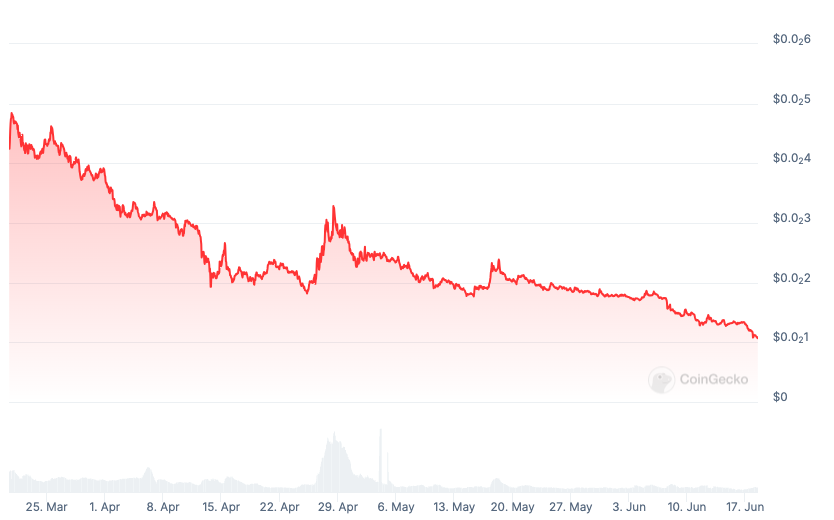Lightspeed Newsletter: Helium Mobile is letting third parties license its hardware
Plus, the rise of RWAs could bring about a significant shift in how real-world investments are managed and accessed
Today, enjoy Lightspeed on Blockworks.co. Tomorrow, get the news delivered directly to your inbox. Subscribe to the Lightspeed newsletter .
Howdy!
Last night, I had the timeless New York experience of grabbing a drink at Jimmy Buffett’s Margaritaville in Times Square.
So if I sound extra chilled out and relaxed in today’s edition, it’s probably just that the residual good vibes are yet to wear off. Rest in peace to a legend. Now as for the crypto world:
Helium Mobile really wants to grow its network
The distributed cellular network and DePIN darling Helium Mobile has begun licensing its tech stack for third-party providers, I reported earlier today .
For the uninitiated, Helium Mobile is a cell phone plan built partly on a network of distributed hotspots. These “mini cell towers” can be run from a kitchen counter or a coffee shop, for instance, and it’s all incentivized via Solana-based MOBILE tokens.
The announcement is a noteworthy one because until now, Helium Mobile cell coverage could only be created by the provider’s in-house created hotspots. By launching the licensing program, which will let third-party manufacturers use Helium Mobile’s tech stack to create their own hotspot devices, Helium Mobile appears to be placing a primary emphasis on growing the network.
Helium Mobile has a few revenue streams, in simplified terms: It earns $20 per month from subscribers, it charges $249 and $499 for indoor and outdoor hotspots, and it can theoretically enter more data-offloading partnerships like its current one with Telefonica.
But one notable cost Helium Mobile foots is its T-Mobile bill: the cell plan is a hybrid of Helium Mobile and T-Mobile, where Helium Mobile buys service from T-Mobile in areas where its hotspots aren’t deployed.
Amir Haleem, Helium Mobile’s founder, told me recently that setting up a network via distributed hotspots is far cheaper than building and maintaining massive cell towers. But in the current world, you’d have to imagine the T-Mobile payments are a bit of a headache. In October, the head of wireless at Helium Mobile’s developer told me the company was losing money on every subscriber partly due to the T-Mobile deal.
A Helium Mobile spokesperson said the service is currently profitable on a subscriber cost basis, meaning the revenue generated from its $20 per month cell plan is greater than what it pays for the cell data. This does not include overhead, staffing, marketing, and other costs.
To shrink its T-Mobile usage, Helium Mobile needs to grow its own network, which is what the licensing program could theoretically do. If a bunch of third parties begin making Helium Mobile devices, market dynamics might put downward pressure on what manufacturers can reasonably charge for hotspots — which could make them more attractive to buy.
And even if it loses business on its own hotspots, Helium Mobile will still collect licensing fees and benefit from the larger total network.
A Helium Mobile spokesperson said in “the short and mid term, we will likely continue to manufacture our own hardware” to expand the network, but it wants to widen the ecosystem of manufacturers.
The company sees the licensing program as part of its ethos of empowering individuals, the spokesperson added. Perhaps empowering individuals can be good for the bottom line as well.
— Jack Kubinec
Zero In
Holders of the MOBILE token have been seeing a lot of red over the past three months.

This three-month price chart from CoinGecko shows MOBILE falling roughly 75%. For context, bitcoin and ether are both up over that time span, and solana is down about 20% (granted, these assets all have much greater market depths than MOBILE, so they’re bound to be somewhat less volatile).
The token is Helium Mobile’s ecosystem token, used for things like rewarding users for sharing their location data to map the network or deploying coverage hotspots.
MOBILE perhaps suffers from a crowded sell side, as the token is used to pay out rewards, but there aren’t necessarily as many compelling reasons to buy the coin.
Helium Mobile is letting users pre-pay for their phone plans using MOBILE, so it would appear they’re exploring at least one avenue for evening out the sell pressure.
— Jack Kubinec
The Pulse
Real estate investment has historically been a domain for the wealthy, requiring substantial capital and the navigation of complex legal processes. For years, blockchain projects such as Propy have looked to tokenize Real World Assets (RWAs) with the aim of democratizing the space. Early platforms often faced scalability problems, however.
Back in March, a company called MetaWealth first announced that it was hoping to address these challenges by building on Solana. Last week, it posted a video on X showcasing a multi-story apartment complex under construction adorned with a “MetaWealth, Powered by Solana” banner, leading to curiosity about the team’s involvement. MetaWealth clarified its commitment to using Solana to enhance the accessibility of RWAs, and emphasized the advantages of Solana’s community and technical prowess.
The company said , “We’ve previously posted about how Solana is the next stage for Real-World Assets, and we’re confident in how to grow the pie by utilizing the most robust community and toolkit available to bring this vision to life.”
The community was quick to react. User @DimDam expressed excitement and gratitude for their introduction to MetaWealth. User @ZenoX_13 posted , “my god team is really ‘BUILDING’.” Another user, @b_bonnp, engaged in a discussion about the use of transfer hooks (mechanisms that enforce compliance and security features in token transactions by allowing custom logic to be embedded within transfers) in RWAs. MetaWealth responded, “Transfer hooks are indeed the future. We’re making our own RWA standard utilizing a few of the extension features!”
The rise of RWAs could bring about a significant shift in how real-world investments are managed and accessed. However, it remains to be seen whether tokenization will truly democratize real estate investment or if it will simply create new complexities that continue to gatekeep these opportunities from everyday investors.
— Jeff Albus
One Good DM
A message from Amir Haleem, founder of Helium Mobile:

Start your day with top crypto insights from David Canellis and Katherine Ross. Subscribe to the Empire newsletter .
Explore the growing intersection between crypto, macroeconomics, policy and finance with Ben Strack, Casey Wagner and Felix Jauvin. Subscribe to the On the Margin newsletter .
The Lightspeed newsletter is all things Solana, in your inbox, every day. Subscribe to daily Solana news from Jack Kubinec and Jeff Albus.
- Helium
- Lightspeed Newsletter
- real world assets
- Solana
Disclaimer: The content of this article solely reflects the author's opinion and does not represent the platform in any capacity. This article is not intended to serve as a reference for making investment decisions.
You may also like
Bitget Will List Dark Eclipse (DARK) in the Innovation, Meme and AI Zone
Stellar Sees $3B of Real World Assets Coming On-Chain in 2025

Arbitrum has launched its new transaction sorting strategy Timeboost on Arbitrum One and Nova
JPMorgan Chase CEO: Trade war damages U.S. credibility
